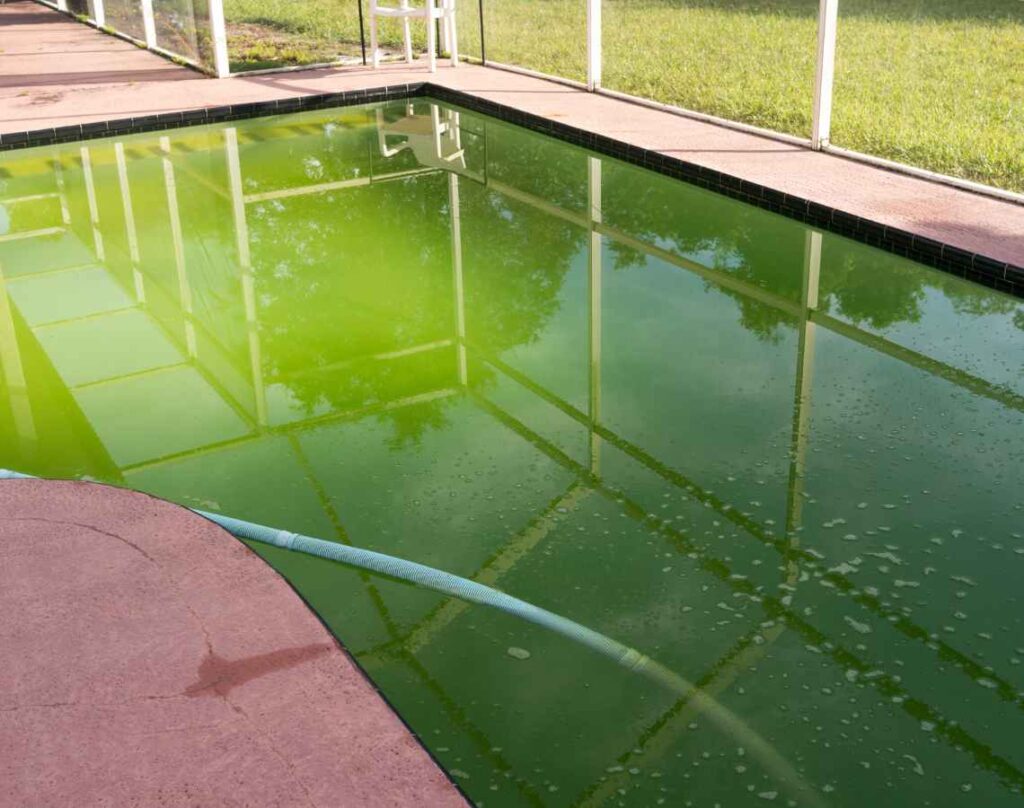When it comes to pools, you want a sparkling oasis that’s both inviting and safe. But the question remains: which type of pool is better suited for your needs – chlorine or saltwater? In this comprehensive comparison, we will explore the maintenance requirements, cost comparison, health and safety considerations, environmental impact, and overall user experience of these two popular options. By the end, you’ll have a clearer understanding of the pros and cons, leaving you ready to make an informed decision that will transform your backyard into a haven of relaxation and enjoyment.
Key Takeaways
- Chlorine pools have a lower initial cost compared to saltwater pools, but saltwater pools require a higher upfront investment.
- Chlorine pools require regular purchase of chemicals, while saltwater pools have lower ongoing maintenance costs.
- Chlorine pools can cause skin and eye irritations, while saltwater pools have lower levels of chloramines, reducing odor.
- Saltwater pools use a chlorine generator, reducing the need for chemicals and their environmental impact.
Maintenance Requirements

Maintaining a chlorine or saltwater pool requires regular attention to ensure proper water balance and sanitation. When it comes to maintenance time, both types of pools require some level of commitment, but the specific needs differ. Chlorine pools require more frequent testing and chemical adjustments to maintain the appropriate chlorine levels. This means you will need to spend more time monitoring and treating the water. On the other hand, saltwater pools require less maintenance time compared to chlorine pools. The saltwater generator produces chlorine automatically, eliminating the need for daily testing and chemical adjustments. However, it is important to note that saltwater pools still require regular monitoring and maintenance to ensure the generator is working properly and to adjust other water chemistry factors.
In terms of cleaning products, chlorine pools generally require more chemicals to maintain water quality. You will need to keep a stock of chlorine tablets, shock treatments, and algaecides on hand. Additionally, you may need to use clarifiers and other specialty chemicals to address specific issues that may arise. Saltwater pools, on the other hand, require fewer chemical products. The main cleaning product needed for saltwater pools is salt, which is used to generate chlorine. You may also need to occasionally add other chemicals such as stabilizers or pH adjusters, but overall, the product requirements are simpler and fewer.
Learn why you should choose the best pool cleaning and maintenance equipment here.
Cost Comparison
When comparing the costs of chlorine and saltwater pools, it is important to consider various factors. One of the primary considerations is the initial investment required for each type of pool. Saltwater pools generally have a higher upfront cost compared to traditional chlorine pools. This is because saltwater pool systems require the installation of a salt cell generator, which can be quite expensive. On the other hand, chlorine pools typically require less initial investment, as they only need a chlorine dispenser or a manual chlorination system.

However, when looking at long-term expenses, saltwater pools often prove to be more cost-effective. Saltwater pools use salt cells to convert salt into chlorine, which means that you don’t have to constantly purchase and add chlorine chemicals. This can result in significant savings over time. Additionally, saltwater pools tend to require less maintenance and fewer chemical adjustments, which can further reduce long-term expenses.
It is important to note that while saltwater pools may have higher initial costs, the savings in terms of long-term expenses can offset this difference. Ultimately, the choice between a chlorine or saltwater pool will depend on your budget and personal preferences. Considering both the initial investment and long-term expenses will help you make an informed decision that suits your needs and financial situation.
Health and Safety Considerations
As you consider the costs of chlorine and saltwater pools, it is essential to also evaluate the health and safety considerations associated with each option. One important factor to consider is water quality. Chlorine pools require regular monitoring and adjustment of chlorine levels to maintain proper water quality. This ensures that the water is free from harmful bacteria and pathogens. On the other hand, saltwater pools use a salt chlorine generator to produce chlorine naturally, resulting in a more consistent chlorine level and potentially better water quality.

When it comes to skin irritation, chlorine pools have a higher likelihood of causing skin irritation compared to saltwater pools. Chlorine can strip the skin of its natural oils, leading to dryness and irritation. It can also cause redness and itching in individuals with sensitive skin. Saltwater pools, on the other hand, have lower chlorine levels, which can be gentler on the skin and less likely to irritate.
In terms of safety, both types of pools have their considerations. Chlorine pools require careful handling and storage of chemicals to prevent accidents. Saltwater pools, while generally safer, can still pose risks if the salt chlorine generator is not properly maintained or if the salt levels are not monitored regularly.
Ultimately, when it comes to health and safety considerations, it is important to weigh the pros and cons of chlorine and saltwater pools, taking into account water quality and the potential for skin irritation.
Environmental Impact
To assess the environmental impact of chlorine and saltwater pools, it is important to consider factors such as chemical usage, water consumption, and potential effects on the ecosystem. Here are four key points to consider:
- Water conservation: Saltwater pools have an advantage when it comes to water consumption. Unlike chlorine pools that require regular draining and refilling, saltwater pools have a self-sustaining system that recycles the water. This reduces the overall water usage and helps conserve this precious resource.
- Impact on aquatic ecosystems: Chlorine pools can have a detrimental effect on aquatic ecosystems. When chlorine is used in pools, it can be released into the environment through backwashing or evaporation. This can harm aquatic plants, and animals, and even contaminate groundwater sources. On the other hand, saltwater pools use a natural process called electrolysis to generate chlorine, minimizing the release of harmful chemicals into the environment.
- Chemical usage: Chlorine pools require regular addition of chlorine, which can involve the use of harsh chemicals. These chemicals not only have potential health risks but can also contribute to air pollution. Saltwater pools, on the other hand, use salt as a natural disinfectant, reducing the need for additional chemicals.
- Overall environmental impact: While both chlorine and saltwater pools have their environmental impacts, saltwater pools tend to be more environmentally friendly. They require less water, use natural processes to generate chlorine and minimize the use of harsh chemicals.
Considering these factors, saltwater pools are a more sustainable and eco-friendly option compared to traditional chlorine pools.
Overall User Experience

With the environmental impact of chlorine and saltwater pools considered, it is crucial to now examine the overall user experience of these two types of pools. When it comes to water quality, both chlorine and saltwater pools can provide a clean and safe swimming environment. However, some users may find that saltwater pools have a more pleasant feel to the water. The salt content in these pools can leave your skin feeling softer and smoother, giving you a more enjoyable swimming experience. On the other hand, chlorine pools may cause skin sensitivity for some individuals, especially those with allergies or sensitive skin. It is important to note that proper maintenance and regular water testing are essential for both types of pools to ensure optimal water quality. In terms of overall user experience, the choice between chlorine and saltwater pools ultimately depends on individual preferences and sensitivities. While saltwater pools may offer a more luxurious and soothing experience for some, others may prefer the familiarity and accessibility of chlorine pools. It is advisable to try both types of pools before making a decision, taking into consideration your own needs and preferences.
Frequently Asked Questions
Can I Switch My Existing Chlorine Pool to a Saltwater Pool?
You can switch your existing chlorine pool to a saltwater pool by going through the conversion process. There are several benefits of saltwater pools, such as reduced chlorine usage and softer water for a more enjoyable swimming experience.
How Often Should I Test the Ph Levels in a Saltwater Pool?
You should test the pH levels in your saltwater pool regularly. It is important to maintain the right balance for optimal water quality. Testing frequency may vary, but typically, once or twice a week should suffice.
Is It Safe to Swim in a Saltwater Pool if I Have Sensitive Skin or Allergies?
If you have sensitive skin or allergies, swimming in a saltwater pool can be a safe option. The natural chlorine produced in saltwater pools is gentler on the skin and doesn’t cause the same irritation as traditional chlorine. Additionally, saltwater pools require less maintenance and offer numerous health benefits for swimmers.
Can a Saltwater Pool Damage My Pool Equipment or Surfaces?
Saltwater pools can have some effects on pool equipment and surfaces. The pros of saltwater pools include softer water and less chlorine smell. However, it’s important to consider the potential cons and ensure proper maintenance to prevent damage.
Are Saltwater Pools More Prone to Algae Growth Compared to Chlorine Pools?
Saltwater pools are not more prone to algae growth compared to chlorine pools. In fact, the saltwater’s natural chlorine content helps prevent algae. Additionally, saltwater pools can be more cost-effective in the long run.






 Alex Cota
Alex Cota  Sophie Pekic
Sophie Pekic Rudy Reyes
Rudy Reyes  Mark Harlan
Mark Harlan Kevin Hall
Kevin Hall  Howard (Howie) Van Lare
Howard (Howie) Van Lare  Chris Cavalerro
Chris Cavalerro 

 Betty Garmendina
Betty Garmendina George Wallace
George Wallace Zach Zastrow
Zach Zastrow Jorge Salazar Bernal
Jorge Salazar Bernal Mike Watson
Mike Watson Jane Ciuchta – Hired 2015
Jane Ciuchta – Hired 2015 Bruce Muir – Hired 2020
Bruce Muir – Hired 2020 David-Metzger – Hired 2014
David-Metzger – Hired 2014 Robin Clarke – Hired 2019
Robin Clarke – Hired 2019 Maddi Davidson – Hired 2022
Maddi Davidson – Hired 2022 John Albachten – Hired 2015
John Albachten – Hired 2015 Jay Bergmann – Hired 2023
Jay Bergmann – Hired 2023 Summer Venegas – Hired 2017
Summer Venegas – Hired 2017 Rebecca Jones – Hired 2015
Rebecca Jones – Hired 2015 Jane Doe – Hired 2014
Jane Doe – Hired 2014